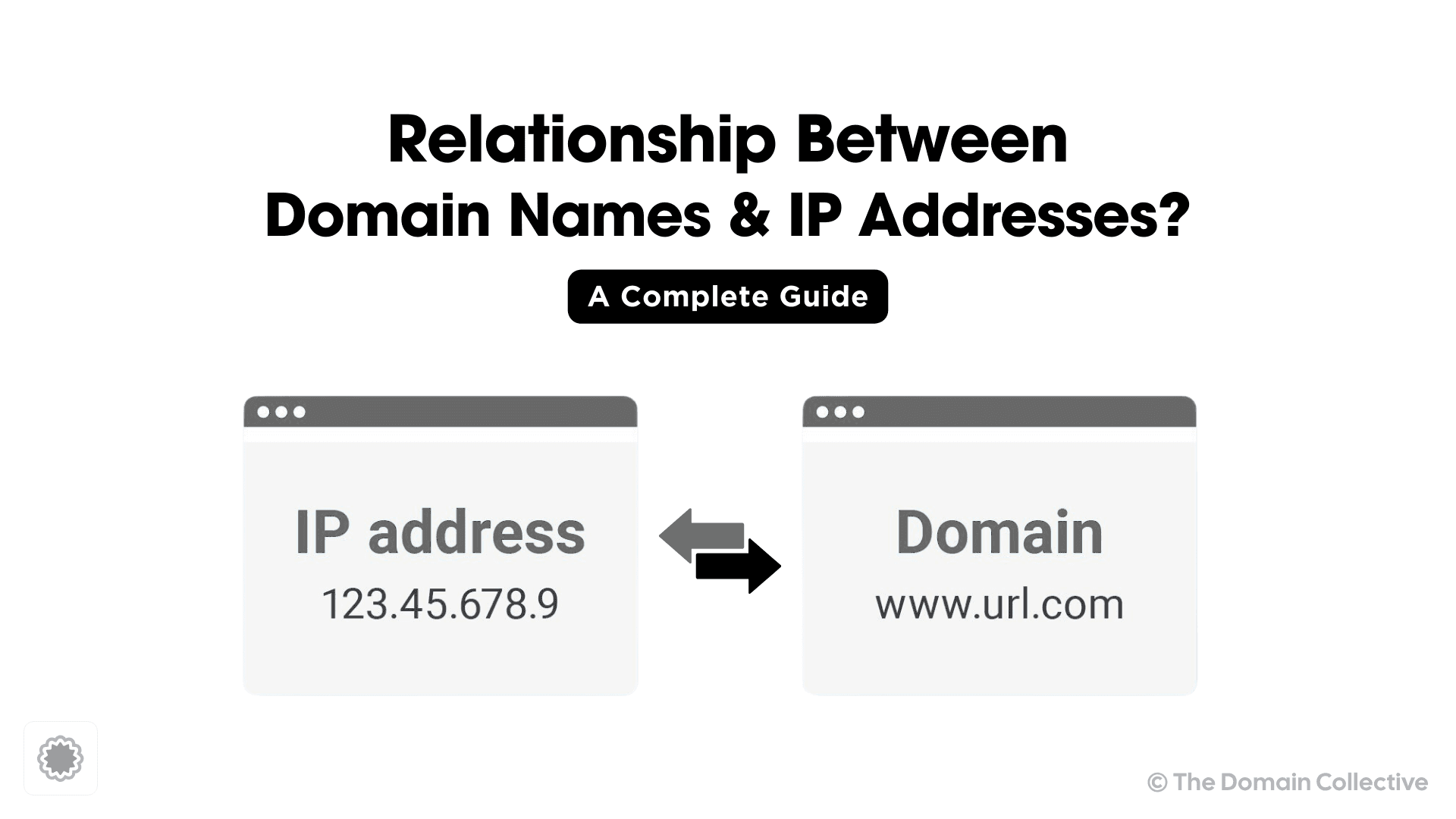Relationship Between Domain Names and IP Addresses?

When surfing the internet, have you ever wondered how your computer knows where to find the website you're looking for? It's all thanks to the relationship between domain names and IP addresses. But what exactly do these terms mean, and how do they work together? This article will delve into the intricate relationship between domain names and IP addresses, providing you with an in-depth understanding of these crucial elements of internet navigation.
- Understanding Domain Names
- Decoding IP Addresses
- The Interplay Between Domain Names and IP Addresses
- Conclusion
- FAQs
Understanding Domain Names
What is a Domain Name?
A domain name is essentially the name of a website. It's what you type into the address bar of your browser when you want to visit a specific site. For example, 'google.com' is a domain name. Simple, right? However, there's more to it than meets the eye.
The Structure of a Domain Name
Domain names are hierarchical, meaning they're organized in a specific way. At the highest level, we have the Top-Level Domain (TLD), such as .com, .org, or .net. Below this, we have the Second-Level Domain (SLD), which is typically the name of the organization or entity. For instance, in 'google.com', 'google' is the SLD.
The Role of Domain Names
Domain names serve a crucial role in making the internet user-friendly. Imagine if instead of typing in 'google.com', you had to remember and enter a string of numbers. Not so convenient, right? That's where IP addresses come in.
Decoding IP Addresses
What is an IP Address?
An IP Address, short for Internet Protocol Address, is a unique string of numbers and/or letters assigned to every device connected to the internet. These addresses are used to identify and locate devices on a network. Think of it as the postal address for your device.
Types of IP Addresses
There are two types of IP addresses: IPv4 and IPv6. IPv4, the older version, uses a series of four numbers separated by periods, while IPv6 uses a combination of numbers and letters. Due to the increasing number of internet-connected devices, the world is gradually moving from IPv4 to IPv6 to accommodate the need for more unique IP addresses.
The Function of IP Addresses
The primary role of an IP address is to facilitate communication between devices on the internet. When you send an email or visit a website, your device communicates with other devices using their IP addresses.
The Interplay Between Domain Names and IP Addresses
Domain Name System (DNS)
The Domain Name System, or DNS, is the magic behind the conversion of user-friendly domain names into IP addresses. It's essentially the phone book of the internet, translating domain names to IP addresses so browsers can load Internet resources.
The Role of DNS
When you type a domain name into your web browser, the DNS servers take over. They search through their database to find the corresponding IP address for the domain name you entered. Once found, your browser can then load the desired webpage.
Why is DNS Important?
Without DNS, we would have to memorize the IP addresses of all our favorite websites - a daunting task, to say the least. DNS makes the internet much more accessible and user-friendly, allowing us to browse with ease.
Conclusion
In essence, the relationship between domain names and IP addresses is a fundamental aspect of how the internet works. Domain names provide a human-friendly way to access websites, while IP addresses allow computers to identify and communicate with each other. The DNS serves as the bridge between these two, translating domain names into IP addresses and making our internet browsing experience seamless and straightforward.
FAQs
-
What is the difference between a domain name and an IP address?
A domain name is a user-friendly name that we use to access a website, while an IP address is a unique string of numbers assigned to each device on the internet. -
Why do we need both domain names and IP addresses?
Domain names make it easy for us to remember and access websites, while IP addresses enable computers to identify and communicate with each other. -
What is the role of the DNS?
The DNS translates domain names into IP addresses, allowing your browser to locate and load the desired webpage. -
What are the types of IP addresses?
There are two types of IP addresses: IPv4 and IPv6. IPv4 uses a series of four numbers, while IPv6 uses a combination of numbers and letters. -
Why is the DNS important?
Without the DNS, we would have to memorize the IP addresses of all our favorite websites. The DNS makes the internet much more accessible and user-friendly.
Get domain tips in your inbox
Join domain professionals who get weekly tips on domain management, DNS, and registrar best practices.
No spam. Unsubscribe anytime.